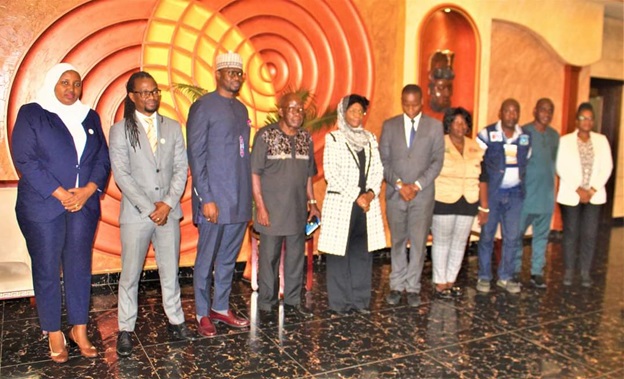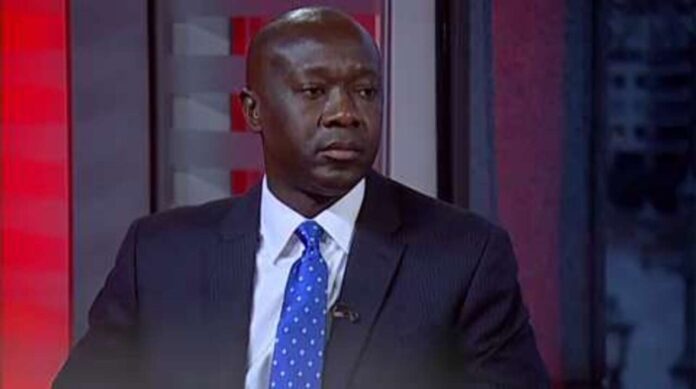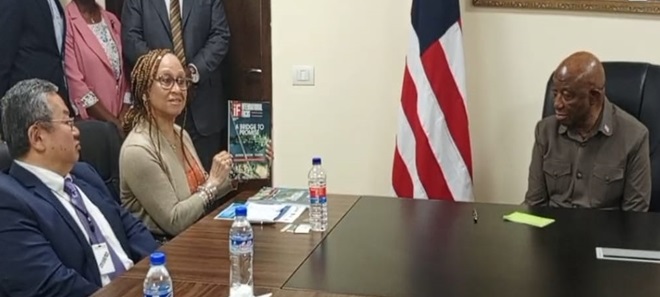MONROVIA, LIBERIA – On Thursday, April 18, President of the African Human Rights Court, Imani Daud Aboud, and her delegation held productive discussions with the Chairman of the Independent National Commission on Human Rights (INCHR), Cllr. Dempster Brown, and others at the Commission’s office in Sinkor, Monrovia. The discussions focused on human rights issues in Liberia.
The INCHR was established to promote human rights, peace, and national reconciliation by implementing recommendations from the Liberian Truth and Reconciliation Commission.
The African Court delegation also met with Vice President Jeremiah N. Koung. During their meeting, Vice President Koung welcomed the delegation and confirmed President Joseph Nyuma Boakai Sr’s support for ratifying the Protocol soon. He stressed that this ratification would showcase Liberia’s commitment to international norms and help restore its reputation among nations.
Koung also highlighted Liberia’s pivotal role in the formation of the African Union (AU) and suggested constructing a symbolic AU headquarters in Liberia to commemorate this legacy.
Earlier, on Wednesday, Madam Aboud and her team held discussions with the Speaker of the House of Representatives, Cllr. J. Fonati Koffa, President Pro-Tempore Nyonblee Karnga-Lawrence, and other key Senators. The primary objective of the African Court delegation’s visit to Monrovia is to encourage Liberia to ratify the Protocol to the African Charter on Human and Peoples’ Rights. Despite signing the Protocol on June 9, 1998, Liberia has not yet ratified it.
Madam Aboud commended Liberia’s leadership in Africa and its dedication to good governance. She underscored the significance of Liberia’s ratification, stating, “By signing the Protocol, Liberia will reaffirm its commitment to the rule of law and human rights, providing its citizens with access to justice.”
The African Court of Justice was proclaimed in July 1979 during the Heads of State Summit in Monrovia and was officially established in June 1998 through the Protocol. The Protocol came into effect on January 25, 2004, and has been ratified by 34 countries to date. The Court, serving as the judicial arm of the AU, is committed to enforcing and protecting human rights, with eleven judges representing AU member states.







